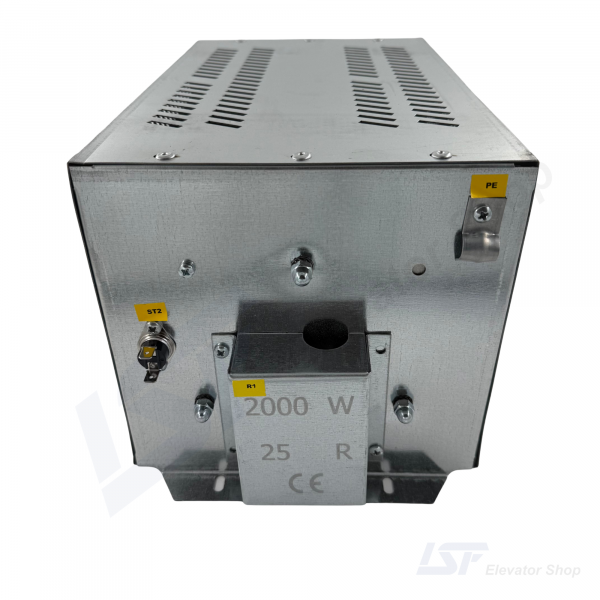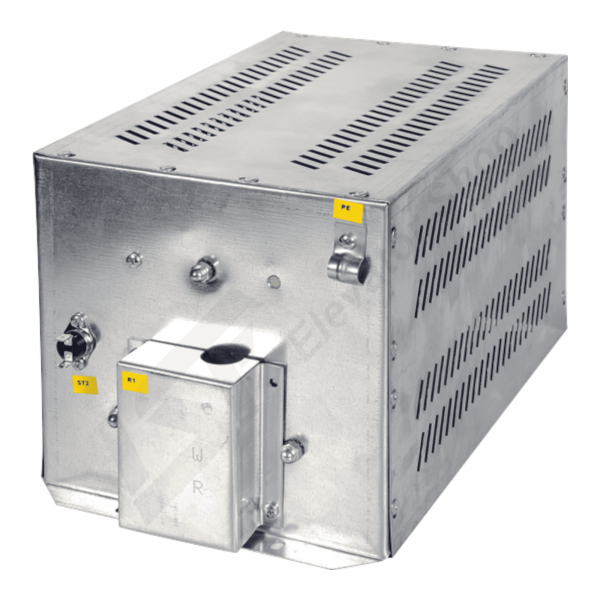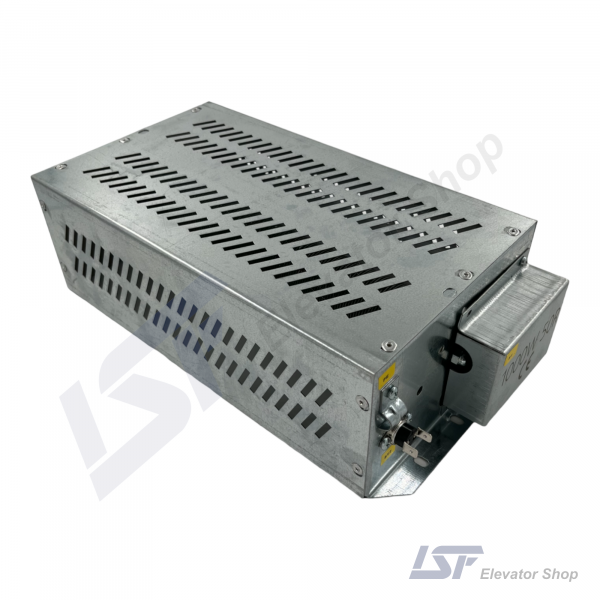Braking Resistors
Showing all 3 results
Explore Arkel Braking Resistors (Brake Resistances) – expertly designed for lift control units & VVVF inverters. With a range from 10 OHM to 50 OHM, we cater to all elevator needs. Discover precision & performance now!
Arkel Braking Resistors: Elevating Elevator Standards
In the complex realm of elevator mechanics, Arkel Braking Resistors are paramount. These precision-crafted components, backed by extensive research, ensure every elevator journey is smooth, safe, and efficient. From skyscraper express elevators to modest apartment lifts, Arkel caters to all.
Attention elevator professionals and enthusiasts! ISF Elevator Shop showcases a diverse selection of Arkel Braking Resistors, epitomizing safety, efficiency, and top-tier performance. Dive into our collection and see how we're redefining elevator standards. Explore our website to find the perfect resistor for your needs. With ISF Elevator Shop, excellence is a guarantee.
Diverse Range of Arkel Braking Resistors
Arkel's dedication to excellence shines through its varied resistor lineup, each tailored to specific OHM and watt requirements:
- 1001434 50 OHM 1000 W: Designed for 5.5kw and 7.5kw elevators, this resistor guarantees a smooth ride, both up and down.
- 1001432 40 OHM 1000 W: A symbol of reliability and efficiency, it's the go-to for 5.5kw and 7.5kw elevators.
- 1001430 25 OHM 2000 W: The ideal match for powerful 11kw elevators, ensuring peak performance.
- 1001428 18 OHM 3000 W: Crafted for the robust 15kw elevators, emphasizing safety and efficiency.
- 1001424 10 OHM 6000 W: The ultimate resistor for the giants at 22kw and 37kw.
Choosing with Arkel: A Seamless Experience
Selecting the right resistor can be challenging, but Arkel simplifies the process. Let your elevator's motor power guide you, and with Arkel's extensive range, you'll always find a compatible match.
The Arkel Commitment
Arkel's braking resistors transcend being mere components. They symbolize a pledge to safety, efficiency, and unmatched performance, setting industry standards.
Frequently Asked Questions (FAQs) about Brake Resistors
1. What Exactly are Brake Resistors?
Brake resistors play a pivotal role in decelerating or halting mechanical systems. Their primary function is to dissipate excess voltage, converting it into heat, ensuring the system remains within safe operational limits.
2. How Do These Resistors Operate?
During deceleration, mechanical systems inadvertently generate electrical energy. Brake resistors, present in the power circuit, consume this energy, converting it into heat. This heat generation creates a braking effect, a phenomenon termed as dynamic braking.
3. Where are Brake Resistors Typically Used?
These resistors are indispensable in scenarios demanding precise speed control. Common applications include elevators, cranes, electric locomotives, and wind turbines. The train industry, in particular, presents promising opportunities for brake resistor utilization.
4. Brake Resistors vs. Friction Brakes: What's the Distinction?
Compared to their friction-based counterparts, dynamic braking resistors exhibit reduced wear and tear. They facilitate quicker deceleration of both AC and DC motors, necessitate minimal maintenance, and are thus favored for motor deceleration tasks.
5. Could You Elaborate on Regenerative Braking?
Certainly! Regenerative braking is a mechanism that recovers energy during deceleration, converting a vehicle's kinetic energy into a form that's either immediately utilized or stored for future use.
6. Do Trains Employ Brake Resistors?
Yes, electric trains, while decelerating or coming to a halt, produce significant energy. This energy is either dissipated as heat or recaptured. As a result, electric train engines predominantly incorporate dynamic braking systems.
7. Are There Any Notable Benefits of Using Brake Resistors?
Absolutely! Brake resistors boast several advantages, including reduced component wear, efficient voltage control, rapid braking for both AC and DC motors, and decreased maintenance requirements.
8. Braking Resistors vs. Brake Resistances
"Braking Resistors" and "Brake Resistances" generally refer to the same concept and denote resistors used for braking. However, the usage of these terms might vary in some contexts. Typically, the term "Braking Resistor" describes a specific type of resistor used to slow down or stop a motor or mechanical system. On the other hand, "Brake Resistance" might refer to the general characteristics or values of these resistors.
To determine if there's a technical difference between the two terms, a more in-depth examination would be necessary. Especially if used in a specific industry or application context, the usage and meaning of these terms might differ.


